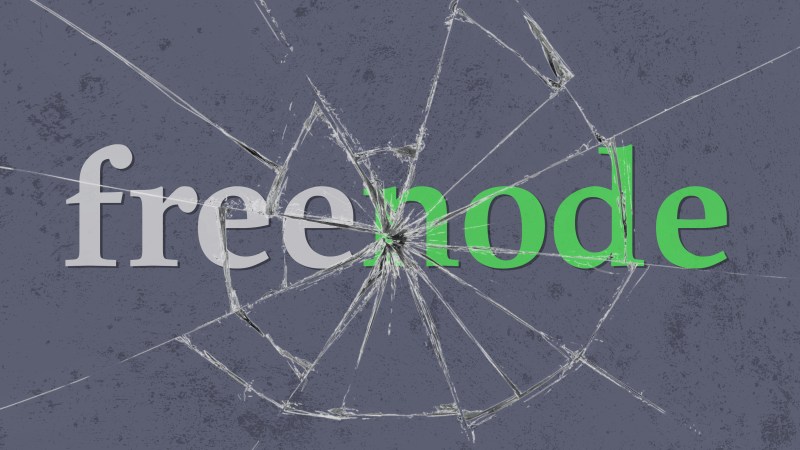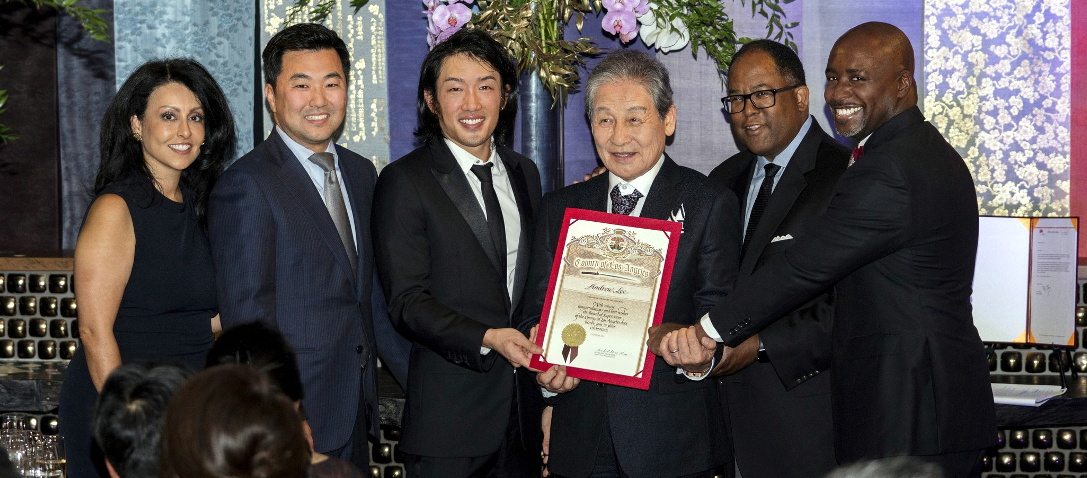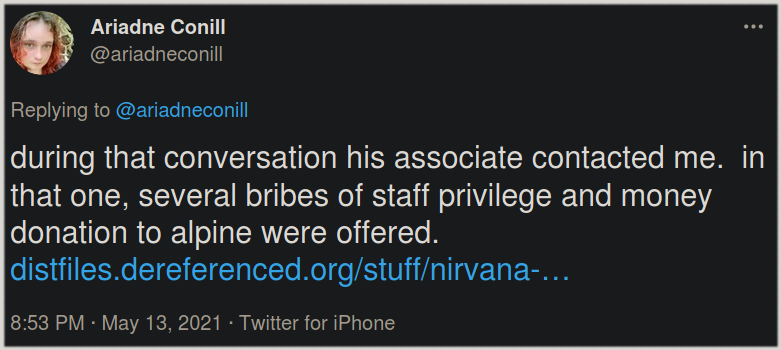
It’s no secret that Internet Relay Chat (IRC) has lost some of its appeal in recent years. These days there’s plenty of free chat platforms boasting slick web interfaces and smartphone push notifications, to say nothing of social networks like Facebook and Twitter. The ability to communicate with like minded individuals from all over the planet in real-time is now something we take for granted, so it’s little surprise that newer and flashier protocols and services have steadily eroded the IRC user base.
But there’s often a hidden cost to using these more modern communication protocols. A lack of operational transparency naturally leads to concerns over monitoring and censorship, which makes such services a poor match for the free and open source community. As such, many open projects have eschewed these newer and more popular services for IRC networks that were developed and maintained by the community itself. Among these, the best-known and most respected is Freenode. Originally started as a Linux support channel in 1995, Freenode grew to become the defacto communication and support tool for free and open source projects of all shapes and sizes, and by 2013 had officially become the largest and most active IRC network in the world.
Unfortunately, the incredible legacy of Freenode is now being jeopardized by what former staff members are describing as nothing short of a hostile takeover. Through a complex series of events which actually started several years ago, control of Freenode has been taken from the community and put into the hands of an enigmatic and wealthy entrepreneur who claims his ultimate goal is to revolutionize IRC and return it to the forefront of online communication. Here’s where it gets weird.
The Crown Prince of IRC
Andrew Lee’s story, at least the first half of it, is not unlike that of many young rising stars in the tech world. The Korean-American was born in Indiana and attended Purdue and the University at Buffalo before dropping out to try his luck with a number of startups. In 2010 he launched an anonymous VPN service called Private Internet Access that he later sold for $95.5 million, and worked on a Bitcoin price tracker that was eventually acquired by Mt. Gox.
During interviews from this time, Lee would credit IRC and the hacker subculture for nurturing him during his formative years as a minority growing up in middle America. Lee said that while he had to struggle with racism in the outside world, the anonymous meritocracy of IRC allowed him to learn and grow. This open and welcoming environment drew him deeper into the world of computers and is what ultimately put him on the path towards becoming a software developer.
While he’d already amassed more wealth and success than the average person could ever dream of, fortune would once again smile on Lee when it was discovered he was a relative of His Imperial Highness King Yi Seok, and officially named Crown Prince of Korea in a lavish 2018 affair.

Determined to use his fame and fortune to enact positive change, Lee penned an open letter to the IRC community detailing his plans to revive the 30+ year old protocol through an influx of funds and talent. This included not only sponsoring the development of open source IRCv3 servers that could support modern functionality such as persistent logging, away notifications, and the ability to edit sent messages, but through ambitious “IRC University” and “IRC Gaming” initiatives designed to pull in new users.
In the letter, Lee made it abundantly clear that he believed his fate to be intertwined with that of IRC’s, and that shepherding it through this next phase of its development was part of his destiny:
Today, I’m strong. Today, I’m confident. Today, I am social.
Today, I am patient. Today, I am accepting. Today, I have a cause.
This would not be the case, if yesterday, for me, was not IRC.I will do unto others as I would like done to myself. IRC created me. And for this reason, I pledge to revive IRC.
For IRC users, this was an exciting and surreal turn of events. Like something out of a Graybeard’s fever dream, a handsome young prince with millions of dollars at his disposal had vowed fealty to an antiquated communications protocol held near and dear to their heart. Even if the chances were slim that IRC would ever make it back into the mainstream consciousness, assuming it was ever truly there in the first place, it seemed undeniable that this was a positive development for the tens of thousands of hackers that still swore by IRC.
Sleight of Hand
Unfortunately, according to several key members of the Freenode staff, Lee’s desire to bring IRC into the 21st century ended up taking a dark turn. It all started with his appointment as the Director of “Freenode Limited” in 2017, a holding company that was ostensibly formed to help funnel funds into the network and manage live conferences. At the time, it was explained to the rest of the staff that this company would have no involvement with the day-to-day operations of the IRC network itself.
But as time went on, Lee started to exert an undue amount of authority on the network. As chronicled in staffer Aaron Jones’s resignation letter, it started simply enough. First the logo for one of Lee’s other companies suddenly appeared in the header of Freenode’s official site, rather than being listed on the appropriate Acknowledgements page. Lee then demanded pages detailing the network’s staff and operational structure be deleted from the site, and created a #freenode-board channel on the network.
Eventually, he and his associates started to seek out and install new staff members on the authority of the so-called “Freenode Board”, an entity which until that at point in time, did not exist. It was around this point that one of these individuals, Shane “nirvana” Allen, attempted to bribe developer Ariadne Conill with the promise of a channel operator role if she would get behind Lee’s claim to Freenode.
During the confusion, Freenode’s head of staff Christel Dahlskjaer stepped down. It was further revealed that, through mechanisms which are not yet fully clear, she signed away ownership of the network itself to Freenode Limited. The staff, made up entirely of volunteers, maintains that Dahlskjaer should not have had the authority to relinquish ownership of the network to begin with. However after consultations with legal experts, the consensus seems to be that fighting the agreement in court would be far too costly; especially with the considerable funds and influence that Lee has at his disposal.
An Uncertain Future
At the time of this writing, several senior members of the Freenode staff have stepped down and published resignation letters that largely tell the same story: Andrew Lee, though a series of underhanded maneuvers, has effectively taken over the network and intends to reform it to fit his idealistic vision. The logic is sound enough: if Lee is to have any chance at “reviving” IRC with the sweeping changes he publicly outlined, having full control over the most active network in the world would certainly be a good way to get your foot in the door.

For the record, Lee has posted his own statement which naturally paints a very different story. Interestingly, while he denies the allegations made against him, he does agree that Freenode is currently in the throes of a hostile takeover. However by his account it’s Freenode’s head of projects and communities, who goes by the handle tomaw, that’s the actual perpetrator. In Lee’s version of events, he’s little more than a bystander that’s been begrudgingly dragged into a volatile situation, and he closes the letter by urging the staff to identify the true traitor among them for the good of Freenode.
Clearly, we haven’t heard the last of this story. In the meantime, former Freenode staffers have started a new IRC network they’re calling Libera Chat. Billed as a “next-generation IRC network for free and open source software projects and similarly-spirited collaborative endeavours”, Libera Chat hopes to continue where Freenode left off and become the new home for communities that value freedom, transparency, and privacy.
It will take more than some drama at the top, however juicy it may be, to drive away more than a fraction of Freenode’s users. Without the benefit of experienced leadership, and in the face of potentially radical changes coming down the pike, the majority who remain behind are likely in for a bumpy ride. If the situation is truly past the point where all parties can come to an amicable agreement and reunify, it could be a loss to the entire open source community.
[Ed note: Or maybe everyone will just move over to Libera Chat. Non-random sampling: #vim and #reprap have officially moved, #archlinux is “letting the dust settle” — meanwhile freenode is still official, and #hackaday was already registered on Libera by the time I got there.]

0 Commentaires